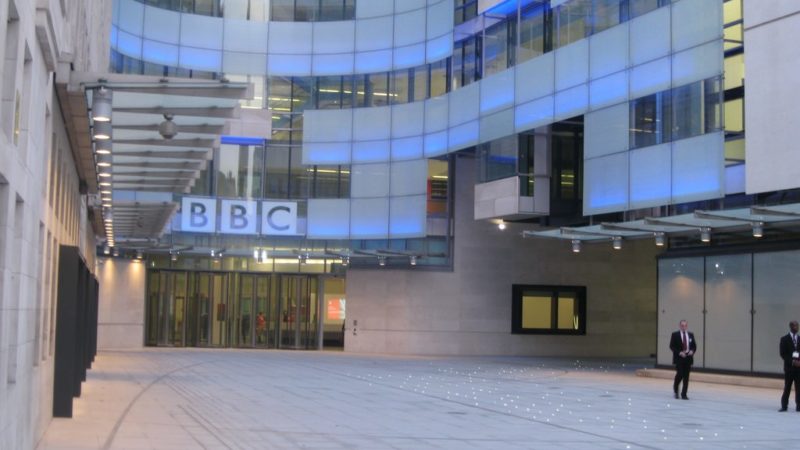If we don’t defend our BBC, we’ll end up with only Facebook and a Fox News style media, which will damage our democracy and hand yet more power to billionaire moguls.

In times of crisis people turn to independent, reliable media, for vital, life saving information. Whether this is available for all of us across the UK in 20 years time, will be determined by whether we can defend our public service broadcaster.
Millions are turning to BBC News every day to access clear information on the virus, with page views more than doubling in seven days.
Across the pond, Fox News claimed that corona was no more dangerous than the flu, and that this was ‘another attempt to impeach the president.’
Trump then repaid this favour by using Fox as his news source for the number of reported cases: ‘that’s at least what was on a very fine network known as Fox News.’ Meanwhile, the big tech companies scramble around to counter misinformation.
If we don’t defend our BBC, we’ll end up with only Facebook and a Fox News style media, which will damage our democracy and hand yet more power to billionaire moguls.
This is more apparent than ever.
Though it should be the government paying for over 75 licences, as has for twenty years, the BBC has agreed to pay for another two months as people need information and company more than ever.
The BBC is acting as the eyes and ears of our communities: using 5 live channels and its local radio stations to give up to date news and answer questions via regular phone-ins.
It’s also connecting people to mutual aid, pledging last week that: ‘every local radio station will join up with local volunteer groups to help coordinate support for the elderly, housebound or at risk, making sure people know what help is available in their area.’
The BBC’s announcements last week included a huge range of measures to guard people’s health and mental wellbeing during this crisis, including broadcasting exercise classes for older people, religious services, recipes and advice on food.
They’re also expanding their Bitesize education programmes while children are not at school, and making a BBC iPlayer for children, whereas ‘Culture in Quarantine’ will provide access to plays, exhibitions and book festivals virtually, and attempt to prevent total shutdown of the creative industries.
The fact that you cannot imagine Netflix or Sky leading on these vital services is a credit to our top public service broadcaster. This is showing the BBC at its absolute best.
However, this doesn’t mean that the BBC has fulfilled all of its duties as a public service throughout the crisis – nor that it doesn’t need to major changes.
Many were confounded at Nigel Farage commenting on public health along with health experts a few weeks back.
As the Prime Minister continued to play the friendly joker, saying ‘I think there were actually a few coronavirus patients and I shook hands with everybody’, the BBC remained arguably far too fair to the strategy. When the BBC’s Laura Kuenssberg reported that ‘the science has changed’ after a shift in the government’s strategy, medical professionals disagreed.
She was corrected by the editor of medical journal The Lancet tweeting: ‘This is not true.’
He wrote in a Guardian article: ‘We had the opportunity and the time to learn from the experience of other countries. For reasons that are not entirely clear, the UK missed those signals. We missed those opportunities.’
While these are instances in an organisation that employs thousands, this is not the time not to hold the government to account for its decisions.
To ensure the BBC continues to serve the public interest, we need to make sure it is truly independent. That means the top board needs to not be appointed by the government, in order to effectively scrutinise government decisions – decisions that can cost lives. It means a citizens’ panel with members sitting on the board, holding that independent board to account on key issues like regional journalism, and high pay.
It means sustainable, fair funding so that it can do its job well. The only way we are going to make our public service broadcasting better is if we support the BBC staying a publicly owned and funded broadcaster with the goal of making programmes and services that educate, entertain and inform.
In a world where even our beloved health care system is being privatised, instead of letting the BBC be murdered by Johnson and Cummings, we demand it be made better at the end of this. Because it’s something worth protecting.
Pascale Robinson is the campaigns officer at We Own It.
To reach hundreds of thousands of new readers and to make the biggest impact we can in the next general election, we need to grow our donor base substantially.
That's why in 2024, we are seeking to generate 150 additional regular donors to support Left Foot Forward's work.
We still need another 124 people to donate to hit the target. You can help. Donate today.



